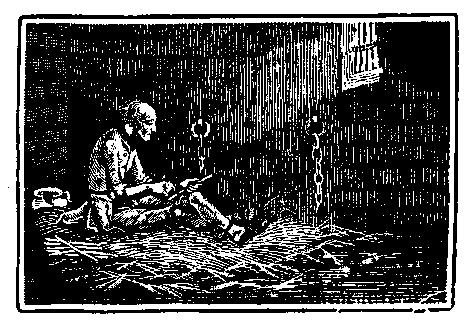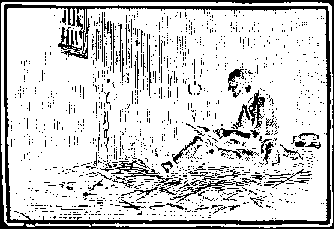of Crime
Boris Brasol
(Oxford)

A very banal discovery, surely! But it must be added at once that there is a great deal more sense in it than one will find in most works on criminology. The aim of the authors of nearly all such books is to frame simple and ready answers to the mystery of crime --- and simple and ready answers, as everyone knows, are usually worthless. For years Lombroso and his followers tried to prove the the criminal was a sub-normal man --- that he was presestined to crime from birth, and that the fact could be demonstrated by measuring his skull, examining his eye-grounds, or testing his knee-jerks. But as the science of anthropometrics advanced it became more and more plain that all that was nonsense, and now it has been pretty well established that criminals, taking one with another, are not inferior at all, but rather above the general average, and that in most prisons they are clearly better men than their keepers. Another school of criminologists argued that crime was simply a symptom of poverty --- that men were driven to theft and murder by dire want. But that theory has been nearly blown up by the fact that in the United States of today, the most prosperous country ever heard of in the world, the crime rate is higher than anywhere else.
The criminologists, indeed, appear to know little more about the causes of crime than the pathologists know about the fundamental causes of cancer, and the two bands of learned brethren are on the same low footing when it comes to treatment. In this emergency it seems to me that something might be found out by seeking the views of actual criminals. The quest, to be sure, would present difficulties. Most criminals of any professional experience are very cautious men, and it would be hard to make them talk frankly. Moreover, the chances are that the majority of them, and even the majority of the more intelligent among them, have not given much thought to the inner nature of their art and mystery, just as the majority of lawyers, even on the benches of the highest courts, appear to have given no thought to the inner nature of the imposture they practise. But there remain others of a more reflective kidney, and with some of these, by the hazards of life in a great free Republic, I have lately enjoyed a certain amount of confidential communion, at either first or second hand. From that communion I gather the impression that the prevailing view of crime, among criminals, is that much of it is caused by too much policing --- that society drives an unpleasantly high proportion of its members into outlawry by setting up standards of conduct that are a bit too stiff for human nature. Irked and made frantic in youth by regulations that work against their natural desires, and so seem to be against their best interests, they approach maturity in a mood of rebellion, and are thus ready for the Devil's snares. If poverty enters into it, it is probably mainly because the poor are always more rigorously policed than the well-to-do. If the neurotic habitus is a factor, then all it means is that, in a Polizeistaat, the neurotics are the most direfully oppressed.
There is a book called One Man, by Robert Steele, that deserves the careful study of criminologists. It is, in substance, the story of a Puritan boy who proceeds from petty misdemeanors to serious felonies, and finally lands in prison. It is a true story, and written entirely without humor or imagination. The point of it is that the boy is driven into crime by the sheer ferocity of his father's Christian virtue. The old man smells the brimstone of Hell in every childish peccadillo. The boy comes to adolescence convinced that he is a damned soul --- that a natural and irresistible impulse toward sin is in him. It is but a step, after that, to graver offenses: he quite reasonably decides that it is better to be hanged for a sheep than for a lamb. I believe that the same reasoning, or much the same, brought the late Henry Judd Gray to the death-house. When Judd committed his first banal adultery with the glittering Snyder siren his Presbyterian conscience converted it into a horrible crime, and he at once sought to justify it by making an honest woman of the lady. A more enlightened man would have forgotten her very name in thirty days, but Judd simply couldn't: his Christian upbringing prevented him. So he begin entertaining the wish that Snyder were out of the way, and finally, distracted his multiplying sins, he steeled himself with bad gin, and converted that wish into a reality. If he had got away with the murder, as he hoped, he would have butchered his wife soon afterward then married La Snyder. The inordinate savagery of the crime was characteristic of a good man gone wrong. The wicked are less barbarous. But the good, once they leap the barrier of conscience, usually go the whole hog.
My point is that the laws in the States grow so fantastically oppressive and outrageous that every young American is, in some sense, in the position of Steele. Two-thirds of his natural impulses encounter Verboten signs. He may be jailed, in some States, for such harmless acts as smoking cigarettes, walking along a railroad track, or kissing his girl. If he is Intelligent and has a taste for reading, he quickly finds that a great many of the books he wants to read are forbidden, and for reasons that, on investigation, turn out to be unintelligible. Coming to adolescence, he is beset by a mass of taboos that would be laughed at by the most taboo-ridden of savages. The world he finds himself in is a world in which almost everything a normal youngster wants to do is under the ban. It is a crime to take a bottle of wine to his sick grandmother. It is a crime to mow the lawn on Sunday. It is a crime to resent the billingsgate of a moron policeman. It is a crime to observe that the President of the United States is a vacuum. Is it any wonder that thousands of American boys, facing such insane prohibitions, conclude not illogically that right and wrong are meaningless terms, and that many of them translate that conclusion into anti-social acts?
 The boy so badgered, of course, may be straightened out and saved by what are called sound home influences. These sound home influences, in the United States today, consist largely of training in evasions, that are approved by the mores of the relatively enlightened minority, though frowned on by the law, which represents the fears, prejudices and congenital ill-nature of the inferior herd. The boy is taught how to keep out of jail, and yet preserve the habits and character of a gentleman. He becomes, at graduation, a good fellow, that is to say, a cynic. But on the lower levels, there is no such prophylactic schooling. There may be a home already invaded by the long arm of the law; there may be no home at all. The astounding thing is not that there are so many young criminals, but that there are so few. The public school, with its witless goose-stepping, is a natural hatchery of them. The movies and newspapers help, not so much by teaching that crime pays, as by teaching that virtue doesn't. The rich, it appears, do not have to obey the laws. An easy route to riches is by the way of crime. I sometimes marvel that the jails are large enough. It is only the magnificient incompetence of the police that saves their walls from bursting,
The boy so badgered, of course, may be straightened out and saved by what are called sound home influences. These sound home influences, in the United States today, consist largely of training in evasions, that are approved by the mores of the relatively enlightened minority, though frowned on by the law, which represents the fears, prejudices and congenital ill-nature of the inferior herd. The boy is taught how to keep out of jail, and yet preserve the habits and character of a gentleman. He becomes, at graduation, a good fellow, that is to say, a cynic. But on the lower levels, there is no such prophylactic schooling. There may be a home already invaded by the long arm of the law; there may be no home at all. The astounding thing is not that there are so many young criminals, but that there are so few. The public school, with its witless goose-stepping, is a natural hatchery of them. The movies and newspapers help, not so much by teaching that crime pays, as by teaching that virtue doesn't. The rich, it appears, do not have to obey the laws. An easy route to riches is by the way of crime. I sometimes marvel that the jails are large enough. It is only the magnificient incompetence of the police that saves their walls from bursting,